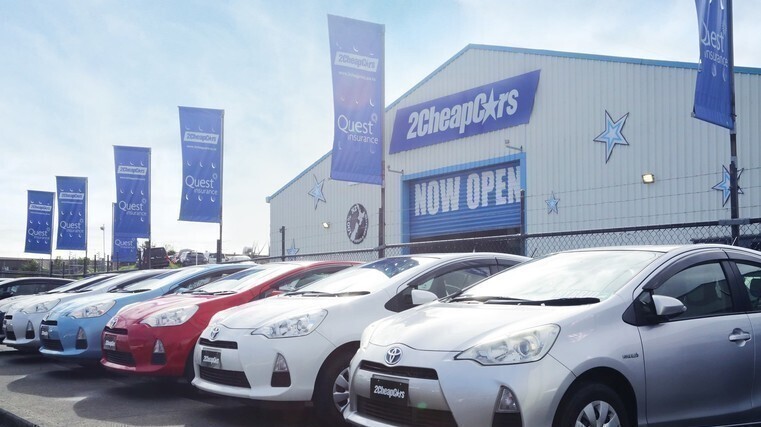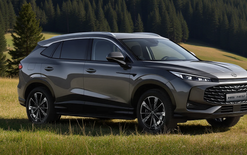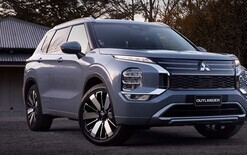Group’s gross margins up 39%

2 Cheap Cars has posted a record $6.2 million in net profit after tax (NPAT) for its 2024 financial year – up by $4.9m versus 2022/23.
Revenue and income came in at $86.8m during the reporting period for an increase of five per cent. Gross margin climbed by 39 per cent to $20.3m as vehicle sales dropped by two per cent to 8,169.
Underlying earnings before interest, taxes, depreciation and amortisation (EBITDA), including finance income, rose by 105 per cent to $11.4m and underlying NPAT was $6.2m, up by 213 per cent.
2 Cheap Cars’ underlying earnings per share came in at 14 cents, up from 4.4c. The final gross dividend was 5.78c, which was equal to the first-half dividend and slightly above the stated dividend policy.
The final gross dividend for financial year 2024 was 11.56 cents per share, which represented a yield of around 14.5 per cent based on the share price of 80c as of May 23, 2024. That compared to zero in 2022/23.
Behind the numbers
The company achieved full-year revenue and income of $86.8m. This increase of five per cent was driven by higher prices, and improved finance and insurance (F&I) penetration rates, offsetting the “slightly lower volumes”.
2 Cheap’s gross margin-expansion strategy has been “extremely effective”, strengthening by six per cent to 23 per cent for the full year, it reports in an announcement to the NZX on May 24.
“This has been achieved through optimised pricing, effective promotional activity, improved F&I penetration and continued insourcing of compliance,” it explains. “Full-year gross margin is up 39 per cent to $20.3m.
“Operating costs have risen marginally by one per cent to $8.9m, significantly below the rate of inflation. Management continues to be strongly focused on minimising cost increases and reducing reliance on third parties throughout the value chain.”
The company’s focus on gross margin and tight control of operating costs has seen underlying EBITDA, including income from finance, increase by 105 per cent to $11.4m. Underlying NPAT rose by 213 per cent to a record $6.2m excluding non-recurring costs.
Interest costs, excluding those associated with leases, were down 52 per cent on 2022/23 “reflecting changes in finance facilities and prudent capital management”.
Net operating cash inflow was $6.9m, down $6.3m year on year, largely due to a strategic decision to maintain stronger inventory levels.
“The company is well-positioned with inventory valued at a healthy $13.9m, up $5.5m over financial year 2023, which was impacted by shipping constraints.
“As of March 31, the company is in compliance with all banking covenants and has cash of $4.7m, no net debt and total equity of $20.4m.”
View from the top
Paul Millward, chief executive officer, says the company’s full-year result underscores the success of its transformation strategy.
“Despite wider pressure on consumer retail spending, 2 Cheap Cars is in great shape,” he adds.
“The company’s strong brand position is now well-supported thanks to work undertaken to ensure robust supply, attract capable people, and a disciplined approach to revenue and cost management.
“The decision to focus on gross margin means the business is now on a stable footing with a clear growth strategy.”
Despite priority being given to increasing gross margins, the business held its market share at 4.5 per cent in 2022/23 as a proportion of dealer-to-public used cars sold between April 1, 2023, and March 31, 2024.
“It continues to be well-positioned to meet the ongoing demand for electric and hybrid vehicles [EVs and HEVs].
“Despite regulatory changes and removal of the clean car discount, the number of EVs and HEVs as a proportion of total sales increased to 56 per cent, up by 14 per cent on the year prior.
“Demand – particularly for cost-effective HEVs – remains stable, accounting for 54 per cent of total vehicle sales in the last quarter of financial year 2024.”
While the impact of Credit Contracts and Consumer Finance Act changes saw a significant increase in loan applications declined, a penetration rate of 27.5 per cent was achieved and income increased by 11 per cent to $4.9m.
Insurance penetration rates grew strongly to 37.1 per cent with insurance income up by nine per cent. to $2.6m.
“Overall, the results reflect the successful implementation of 2 Cheap Cars’ margin-expansion strategy, which it achieved by leveraging its reliable source of used cars from Japan and increasing prices where necessary to offset cost pressures,” says the company.
“Utilising additional shipping providers to ensure consistent vehicle supply, and undertaking and insourcing more compliance and operations activity, has also had a positive impact.”
NZ Motor Finance‘s loan book remains in run-down mode, reducing from $3.9m at the end of March 2023 to $1.8m at March 31 this year and making a $500,000 profit in 2023/24.
Looking to future
2 Cheap Cars says it has a “very clear value proposition and strategy that continues to successfully meet market conditions” as indicated by its results for 2023/24.
With its “transformation” now complete, the company’s focus remains on delivering gross margin over market share, continuous business as usual (BAU) improvement and profitable, sustainable growth through its property strategy.
The property strategy is a key growth factor for 2 Cheap Cars, with positive steps being taken to identify and develop new or better retail locations to benefit its scale model, particularly in Auckland.
Assuming favourable supply, currency and trading conditions, NPAT is expected to grow in the 2024/25 financial year by focusing on gross-margin expansion, prudent cost management, increasing direct control of the value chain and “sensible” expansion in Auckland.
Michael Stiassny, chairman, says the outlook is strong with the company “extremely well-positioned” in the prevailing economic climate.
He adds: “It’s incredibly tough going right now for very many New Zealanders, but they still need cars and those cars must be affordable. 2 Cheap Cars fulfils a vital need.
“The full-year results reflect we are doing that well, in large part due to the hard work of departing CEO Paul Millward.
“Paul is leaving the company in robust shape with a simple, proven strategy well-embedded. The board thanks him sincerely for his leadership and results. Future success will be found in continuing to improve BAU and prudent expansion.”
Founder and majority shareholder, David Sena, takes over as chief executive officer of the company on June 1.





